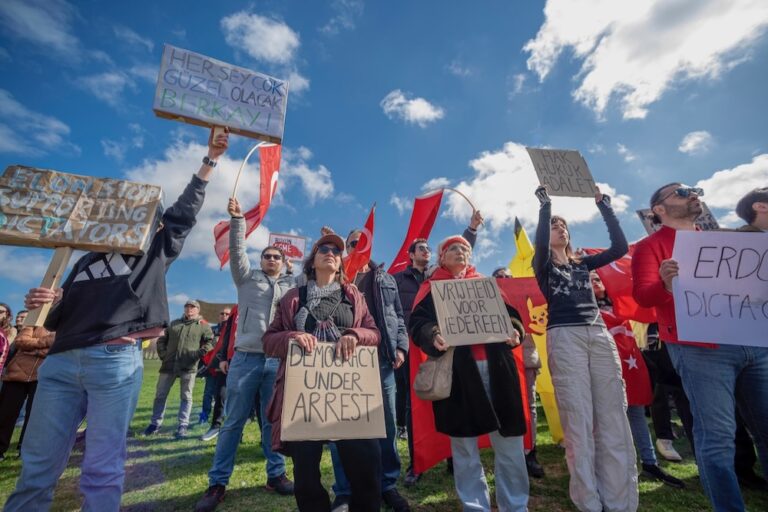(IFJ/IFEX) – The following is a 27 November 2008 IFJ media release: IFJ Welcomes Court Action Over Killing of BBC Journalist The International Federation of Journalists has welcomed the action of a British coroner investigating the killing of a journalist in Somalia who called on the BBC to ensure journalists are never put under pressure […]
(IFJ/IFEX) – The following is a 27 November 2008 IFJ media release:
IFJ Welcomes Court Action Over Killing of BBC Journalist
The International Federation of Journalists has welcomed the action of a British coroner investigating the killing of a journalist in Somalia who called on the BBC to ensure journalists are never put under pressure to go on dangerous missions.
Coroner Dr Peter Dean said he would be writing to the BBC to stress that managers must recognise staff had an overriding right to turn down dangerous jobs, regardless of fears they might have for future employment. He recorded a verdict of unlawful killing yesterday in the case of Kate Peyton who was shot dead in Mogadishu, Somalia, in February 2005.
Evidence to the inquest from her family and friends, including IFJ General Secretary Aidan White, suggested she may have sidelined safety concerns because she was worried about keeping her job.
In his evidence, White told the inquest that he feared many journalists may feel pressure to accept dangerous assignments because of fears over their employment. He said managers had a responsibility to consider a person’s state of mind, particularly at a time when more and more journalists were being employed as freelances or on precarious contracts.
He said that despite the BBC’s exemplary record in the field of news safety, in the case of Kate Peyton, who had been warned about her work and was worried about her future, the company’s risk assessment process may have fallen short. He said the BBC should look at ways of ensuring that the personal circumstances of journalists, including their working conditions, figure in risk evaluation procedures.
“Kate’s death deeply affected everyone, including her colleagues at the BBC,” said White after the inquest. “Her family are right to insist that there are lessons to learn from the circumstances in which she was assigned this dangerous mission.”
He said recent court judgements in the United Kingdom also make it imperative that risk assessments such as those in use at the BBC are reviewed wherever there is a change of personal circumstance. Such assessments are supposed to take account of particular risks to high risk groups, like contract workers.
“If the BBC and other media employers do not bear this in mind, they may find themselves at risk from legal action in future,” said White.
Kate, 39, a BBC producer from 1993, was killed in the Somali Capital Mogadishu on 9 February 2008 shortly after she had arrived in the war-torn country to cover the political process. She was hit in the back by a single bullet as she waited for her car outside the hotel where she had gone to meet members of the Nairobi-based Somali transitional government.
The IFJ represents over 600,000 journalists in 120 countries worldwide.
Updates the Peyton case: http://ifex.org/en/content/view/full/72551


